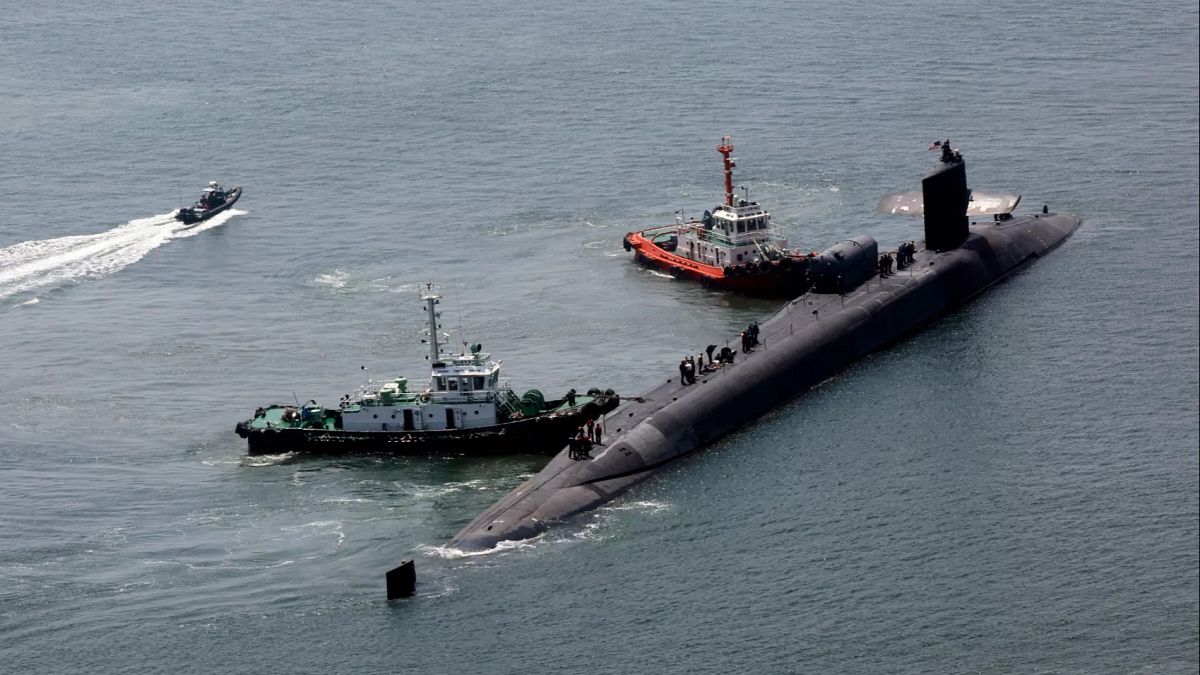

In recent times, the intricate dynamics of international diplomacy and domestic policy have witnessed significant, if contrasting, developments. Former President Donald Trump has announced the repositioning of critical military assets, accentuating the fluidity of global relations. Meanwhile, the domestic realm of legal aid in the UK grapples with a cyber-attack, underscoring challenges that demand thoughtful solutions.
In a world where geopolitical tensions frequently ebb and flow, recent movements in U.S. military deployment underscore the ongoing need for strategic vigilance. In a decisive move, former President Donald Trump proclaimed the repositioning of two substantial ‘nuclear submarines’ closer to Russian boundaries. This action reportedly arises from a reaction to perceived threats articulated by Dmitry Medvedev, a prominent Russian political figure. Such deployments echo sentiments of deterrence and readiness, underscoring the complex balance of power that prevails in global politics. While not necessarily indicative of heightened aggression, this movement signals a consistent message of strategic preparedness, resonant of diplomatic dialogues and international protocols that prioritize security.
On the domestic front, the United Kingdom’s legal aid sector is experiencing noteworthy turbulence. A cyber-attack on the Legal Aid Agency has propelled the sector into a state of uncertainty, with profound implications for both legal professionals and those in need of legal services. The breach involved unauthorized access to substantial personal data dating back to 2010, intensifying concerns about data security and operational stability. As barristers report non-payment and the turning away of cases, the potential exodus of firms from legal aid work poses a formidable challenge to ensuring access to justice. This situation highlights the critical importance of safeguarding sensitive information and reinforces the necessity for resilient legal infrastructures that can withstand unforeseen disruptions.
In parallel, the evolving narrative within the Republican Party, particularly among its younger members, reflects an invigorated dialogue about leadership and future direction. As the Young Republican National Convention approaches, two distinct factions keenly vie for influence, each aspiring to embody the essence of the Make America Great Again (MAGA) ethos. This internal contest underscores a broader discussion on political identity and vision, advocating for a robust and diverse exchange of ideas as it seeks to chart a course for the coming years. The outcome of this internal dynamic will not only shape the party’s strategies but also enrich the wider political discourse in the United States, fostering a vibrant and inclusive dialogue on governance.
Amid these varied challenges and opportunities, the importance of constructive resolutions and cooperative engagement remains paramount. As former President Trump’s actions reflect ongoing international watchfulness, the discussions within the Republican Party illustrate the vibrancy of domestic political landscapes. Meanwhile, the UK’s legal aid sector calls for renewed attention to cybersecurity and institutional resilience, ensuring that the foundations of justice remain steadfast and accessible to all.
In conclusion, the tapestry of recent events encapsulates the interconnectedness of global and domestic arenas. These developments, while distinctive in nature, invite a shared commitment to mindful leadership, informed decision-making, and the fostering of environments conducive to peace, progress, and justice. By embracing these principles, society can navigate these complexities with poise and purpose, fortifying pathways toward mutual understanding and constructive change.
Source: {link}
